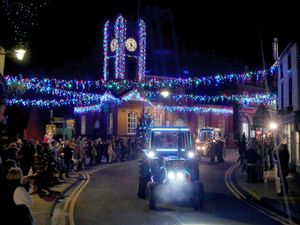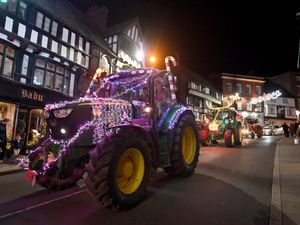Time to exert some air-traffic control
No one likes hearing a bang, writes Rural Affairs Editor Nathan Rous. It doesn't matter whether it's a pheasant-head-butting-your-front-bumper kind of bang, or a muffled bang which comes from upstairs while you're watching a horror movie.
 No one likes hearing a bang, writes Rural Affairs Editor Nathan Rous.
No one likes hearing a bang, writes Rural Affairs Editor Nathan Rous.
It doesn't matter whether it's a pheasant-head-butting-your-front-bumper kind of bang, or a muffled bang which comes from upstairs while you're watching a horror movie; bangs are meant to churn your insides, quicken your heartbeat and prick the hairs on the back of your neck.
Some of us are more susceptible to the bang: Second World War veterans are likely to drop to the deck, rub their rheumy eyes and shout for cover while their wife totters in with the offending pan lid which simply dropped off the stove; toddlers will fill a nappy in an instant should a balloon fail to withstand the attentions of their new teeth.
But bangs are even worse when you hear them on an aircraft at 35,000 feet. Like my return flight from France last week. Leafing through yet another dreadful inflight magazine (wow, 25 reasons to visit Kabul, how novel), I turned to reassure my newly pregnant wife that our descent into Birmingham was entirely normal.
And then came the bang. Not a bang which suggested an overhead locker being forcefully shut, or a passenger kicking their way out of the toilets, but a bang which screamed "you're going to die". For a brief moment I stared into my wife's panic-stricken eyes and saw the reflection of my own fear.
The captain quickly grabbed the Tannoy with a far-too-relaxed explanation of our plane running across another plane's wake. The only wake I was worried about was my own.
But as our twin-prop settled back into a jittery descent, I looked down at the world anew. Boy, did I not want to fall to my death on to the M6.
Interestingly though, my bird's-eye view of England and France could not have been more different.
At home, blobs of yellow, like mustard on the side of a Sunday dinner, illuminated the landscape. For rapeseed, heading either to the biofuels market or the kitchens of Britain's masterchefs, is the newest crop on the block.
Yet landing in France there wasn't a patch of yellow to be seen. For France, where the farmer is king, food still rules the roost.
Most of what is grown in France is eaten in France; its self-sufficiency is not only admirable but clever, protecting its people from the scourge of high food prices.
Yes, prices are going up across the continent, but those countries that aren't slaves to foreign imports will survive better than those that are.
The French have it sussed. They buy French cars, eat French produce, drink French wine (who can blame them?) and holiday in their home country. The queue at departures for a flight to Malaga was barely a dozen deep while an internal jaunt to the southern French coast was heaving with animated French holidaymakers.
As a result of this consumer xenophobia, their towns have a different complexion too. Far from dominating, their supermarkets take a back seat. The queue for the boulangerie is far greater than at any supermarket till, as is the snaking line of customers for the charcuterie.
Buying your food for the day guarantees its freshness. It also maintains your interaction with the person directly responsible for your food source. By all means buy your bread from a supermarket's in-house bakery, but do you chat to the staff? Do they have the loaf that you love waiting, ready, warm for you to pick up every day? I doubt it.
There is a sense of supporting local industry because each shopper knows that money spent locally stays local.
Perhaps this is where the secret lies - in the community.
Gordon Ramsay's campaign to fine chefs for cooking out of season foods is a bit far-fetched, but the idea is spot on; if we are ever to become self-sustaining, if we are ever to protect ourself from the maddening world, we have to return to our roots.




